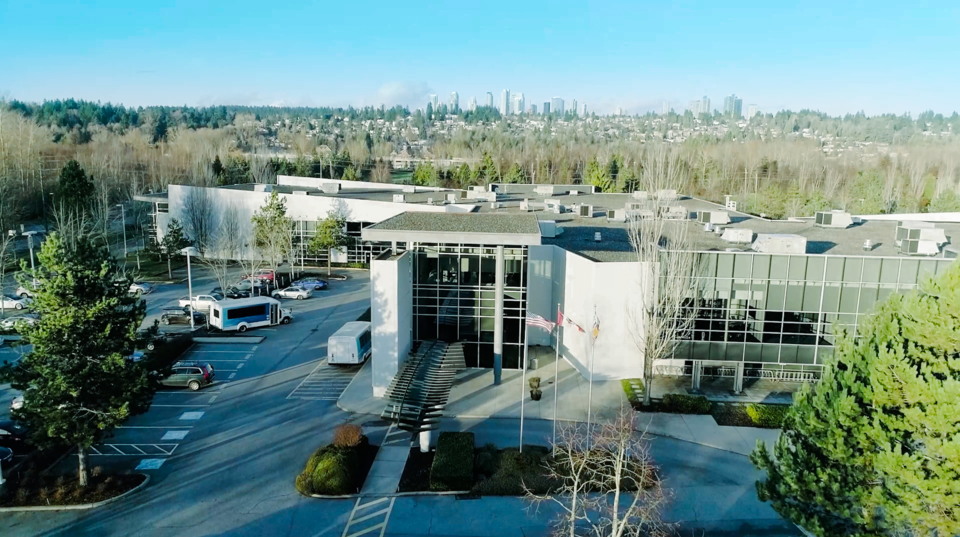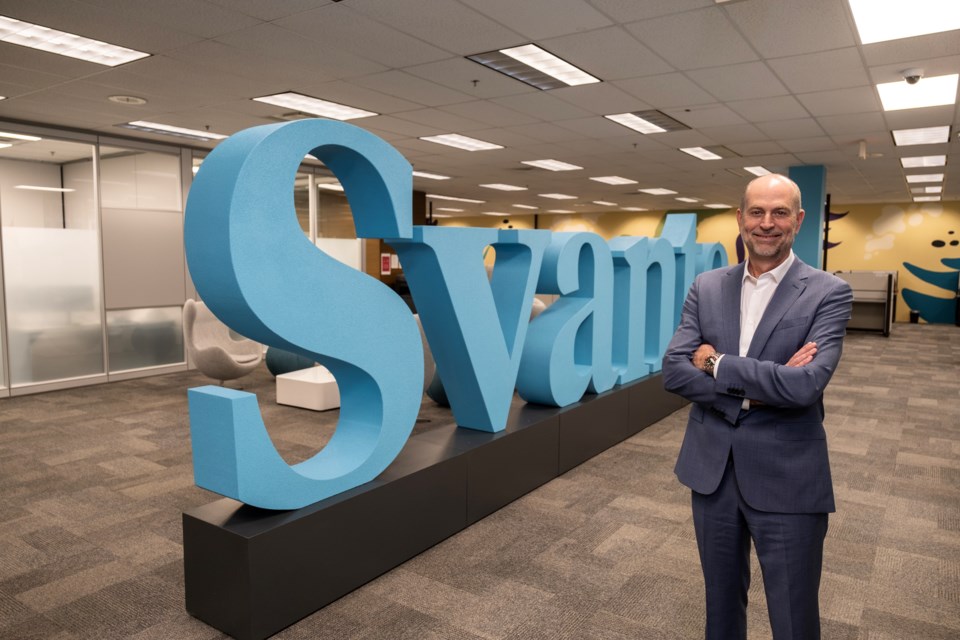A leading B.C. cleantech company says the big gap in financial support offered by the Canadian and U.S. governments has made it consider leaving the country.
Burnaby-based Svante Inc. is a leader in carbon capture, utilization and storage (CCUS) technologies, which allow manufacturers to capture and store carbon dioxide (CO2) so that it doesn’t pollute the atmosphere.
The company said it invested $165 million in the new Centre of Excellence for Carbon Capture and Removal in Burnaby to produce the filters necessary to capture CO2, and that it did so with the belief that the company would be eligible for the federal clean technology manufacturing investment tax credit (ITC).
But when the 2024 federal budget was released last month, carbon capture equipment and manufacturing was not eligible for the clean technology manufacturing ITC, which means the new centre that is almost complete cannot claim Ottawa’s 30 per cent tax credit.
“I’m very disappointed in the Canadian government,” said Claude Letourneau, president and CEO of Svante.
“If this is the policy gap that’s resulting from not including carbon capture equipment in the ITC for manufacturing, then the manufacturing base of the technology ecosystem will basically not happen in Canada.”
Letourneau said CCUS technologies play an important role in accelerating Canada’s clean-energy transition toward the government’s goal of net-zero emissions by 2050, and Svante is the only major manufacturer of carbon capture equipment and materials to remain 100 per cent Canadian-owned.
Many other CCUS technology providers have been acquired by international companies or have moved to the U.S., which offers more appealing financial incentives for CCUS investment and manufacturing. Carbon Engineering Ltd., for example, is a B.C.-based CCUS company that was acquired by U.S. firm Occidental Petroleum Crop. (NYSE:OXY) last August.
Quebec-based CO2 Solutions Inc. was acquired by Italian firm Saipem (BIT:SPM.MI) in 2020 and Montreal firm Cansolv Technologies Inc. was bought by Netherland-based Shell Global Solutions International B.V. (NYSE:SHEL) in 2008. Earlier this month, Edmonton-based Capital Power Corp. (TSX:CPX) announced it was discontinuing its pursuit of its own $2.4 billion carbon-capture project because it was not economically feasible.
“I get calls from all countries around the world these days to set up our filter manufacturing plant, and I get calls from every state in the U.S. rolling out the red carpet,” said Letourneau. “I’m not supported by my Canadian government.”

Svante has raised more than $650 million mainly from corporate ventures and global private equity investors, with around $50 million from the Canadian government, according to Letourneau.
“I get lots of calls from investors asking me, ‘Why should we continue doing business in Canada?’ The likelihood is that when somebody’s going to ask me to go and set up manufacturing in the United States that rolls out the red carpet, I will say yes.”
Ottawa’s Department of Finance said in a statement to BIV that the manufacturing of CCUS equipment is not eligible for the reduced tax rates because it is unclear at the manufacturing stage which fabricated components would be used specifically for CCUS.
For example, it would be difficult to identify carbon separation equipment that is intended for CO2 storage rather than for use in other industrial processes such as ammonia production, natural gas processing or transportation, according to the department.
“The government is putting forward $93 billion in major investment tax credits, including carbon capture, utilization and storage, to support the creation of good jobs today and tomorrow in clean energy industries,” the department said in a statement.
Ottawa introduced in Budget 2021 a CCUS investment tax credit of between 37.5 to 60 per cent for investments in CCUS projects in B.C., Alberta and Saskatchewan. The credit is not yet active and is waiting for Parliament approval. It would be similar to the U.S. government’s 45Q program, which offers a tax credit for CCUS project investment.
But Canada has no incentives that match the U.S. government’s 48C program, which provides tax credits to companies like Svante that set up manufacturing facilities for CCUS equipment and materials, said Letourneau.
“[The U.S. government] is making it economically viable to capture and store carbon underground through both 45Q and 48C, leading to large-scale carbon capture and storage investments in that country,” he said.
“This policy gap puts Canada’s carbon capture innovators at a serious disadvantage.”
Alexandra Tavasoli, assistant professor in industrial decarbonization at the University of British Columbia, said Canada is lagging the U.S. in funding in many fields, not just in CCUS.
“In general, there is less money to go around in Canada, period. And there are only so many policy tools that you can use to fix that problem,” said Tavasoli.
“Certainly, the Canadian government is trying to do what it can to incentivize companies to remain here through different tax credits and funding mechanisms, but at the end of the day, we’re operating a free-market economy. If those companies go to the U.S., there’s nothing we can really do to stop them.”
Letourneau said he is disappointed that the Canadian government invests billions of dollars in attracting overseas companies to set up factories in fields such as electric vehicles and batteries, while Svante—a Canadian company that has already developed world-leading green technologies—is not receiving the support it needs to grow in Canada.
“I need to stir the pot a bit because this is insane to me. Totally insane,” he said.
“They need to put [CCUS] ITC under law and put ITC for green manufacturing under law—the ITC for clean manufacturing needs to include carbon capture authorization equipment and materials.”



